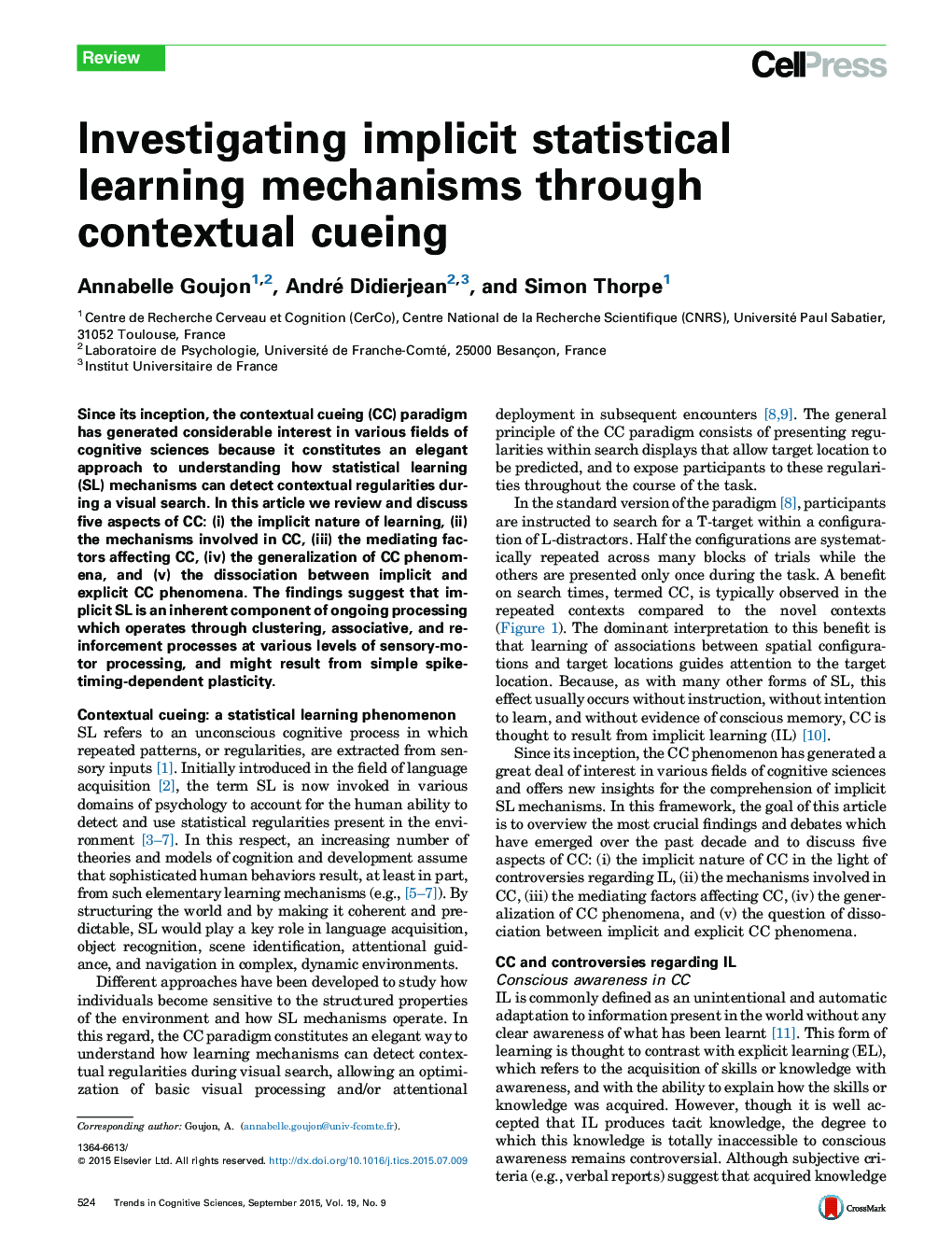| Article ID | Journal | Published Year | Pages | File Type |
|---|---|---|---|---|
| 141368 | Trends in Cognitive Sciences | 2015 | 10 Pages |
•Implicit learning of statistical regularities plays a key role in cognition and development.•Contextual cueing phenomena offer new insights on statistical learning (SL) mechanisms.•Implicit SL is an inherent component of the ongoing processing.•Implicit SL might result from spike-timing-dependent plasticity mechanisms.
Since its inception, the contextual cueing (CC) paradigm has generated considerable interest in various fields of cognitive sciences because it constitutes an elegant approach to understanding how statistical learning (SL) mechanisms can detect contextual regularities during a visual search. In this article we review and discuss five aspects of CC: (i) the implicit nature of learning, (ii) the mechanisms involved in CC, (iii) the mediating factors affecting CC, (iv) the generalization of CC phenomena, and (v) the dissociation between implicit and explicit CC phenomena. The findings suggest that implicit SL is an inherent component of ongoing processing which operates through clustering, associative, and reinforcement processes at various levels of sensory-motor processing, and might result from simple spike-timing-dependent plasticity.
